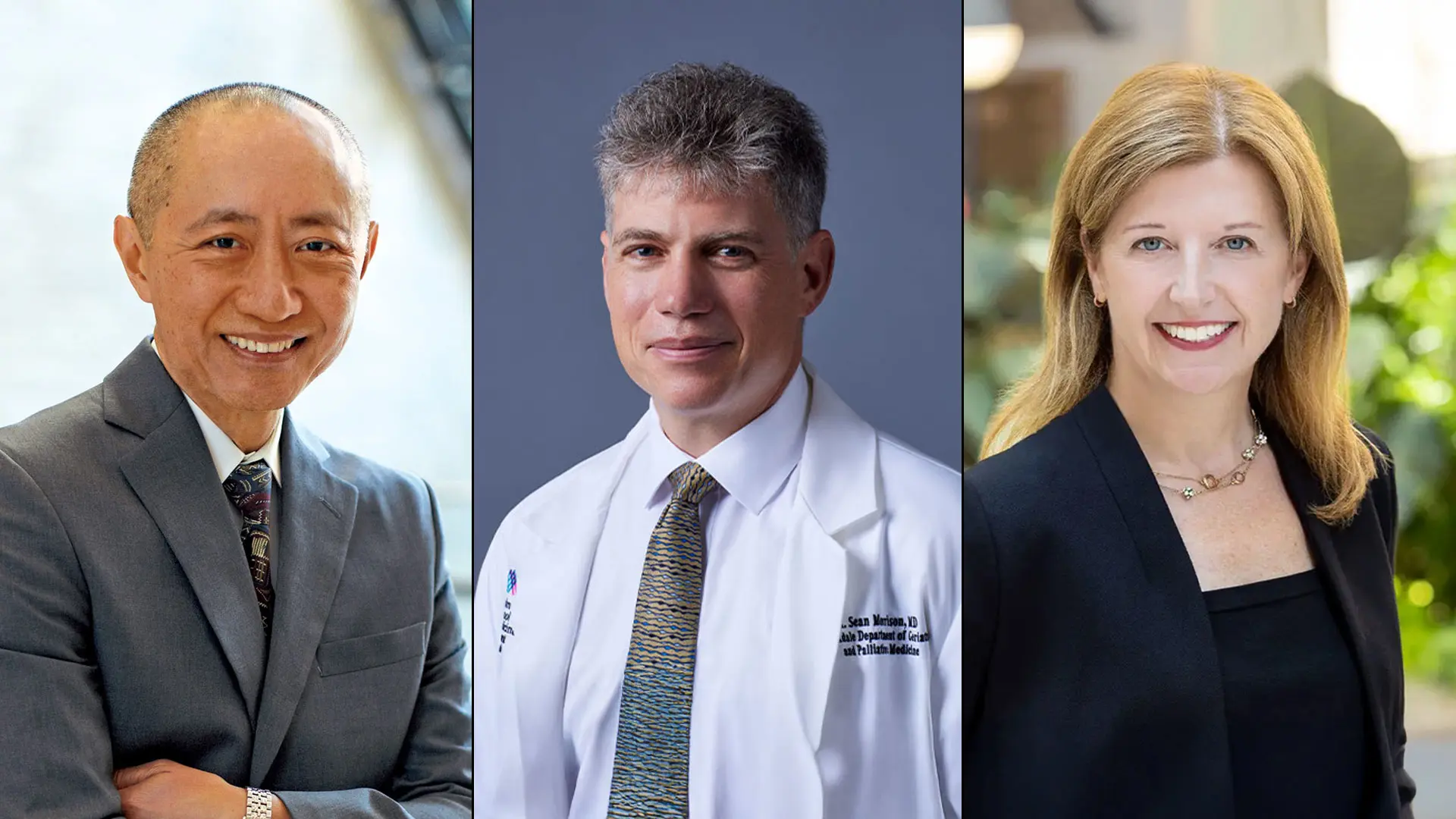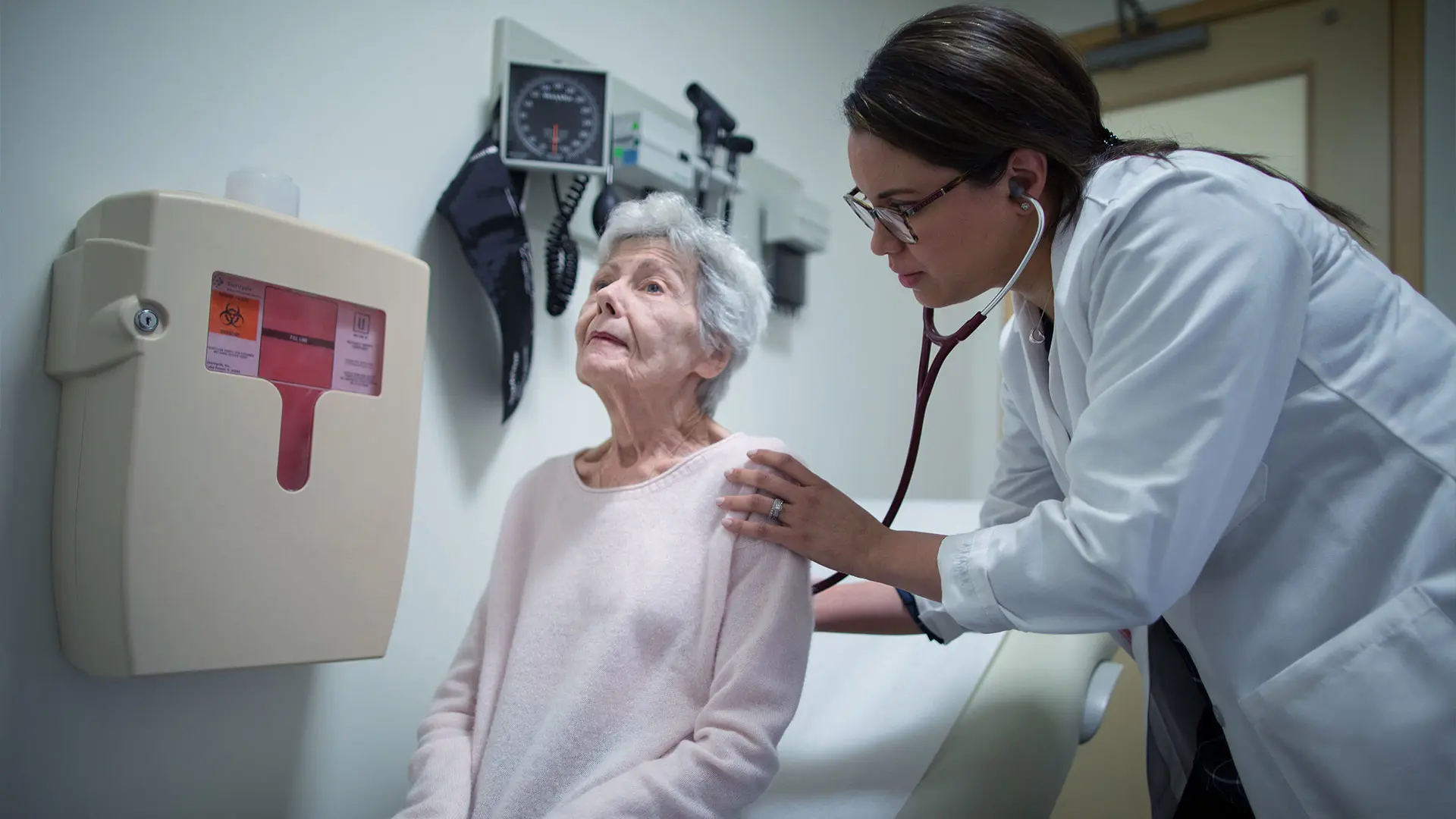When Mount Sinai united geriatrics and palliative medicine in 2009—changing the department’s name from “Geriatrics and Adult Development” to “Geriatrics and Palliative Medicine”—it touched off a nationwide movement, with more than 40 academic medical centers following in its footsteps.
The catalyst for that alignment of palliative care research with the special needs of older adults with serious illness was Mount Sinai’s entry into the Claude D. Pepper Older Americans Independence Center program.
The latest five-year renewal of the Brookdale Department of Geriatrics and Palliative Medicine’s Pepper Center grant in August 2025 by the National Institute on Aging presents an opportunity to not only reflect on the significant accomplishments in aging and palliative care research over the past 16 years, but to focus on new initiatives being planned to improve the quality of life and independence of older adults with serous illness and their caregivers, the avowed mission of Mount Sinai’s Pepper Center from day one.
“From our Pepper Center work we created the field of geriatric palliative care, a field where prior to 2010 very little research was done to help older adults who struggle daily with not only multiple co-morbidities, but cognitive and functional impairment,” says R. Sean Morrison, MD, the Ellen and Howard C. Katz Professor and Chair of the Brookdale Department of Geriatrics and Palliative Medicine at the Icahn School of Medicine at Mount Sinai.

Albert Siu, MD, left, served as the first Principal Investigator (PI) for the Claude Pepper Center at Mount Sinai. R. Sean Morrison, MD, the Ellen and Howard C. Katz Professor and Chair of the Brookdale Department of Geriatrics and Palliative Medicine, then served as PI, and now Melissa Aldridge, PhD, serves in that role.
“As part of that effort, we developed a model for training scientists at the intersection of geriatrics and palliative medicine,” he adds. “And with the latest grant renewal, our focus will be on developing the next generation of best and brightest scientists, and to support research that addresses the unmet needs of older adults in critical areas such as the disparities in and access to quality health care across the country that this population faces.”
The Brookdale Department is currently one of 15 Pepper Centers across the United States named after the late Congressman from Florida who was considered a leading spokesperson for older adults, and in whose memory the OAIC program was created. Under the leadership of Dr. Morrison and Melissa Aldridge, PhD, Professor of Geriatrics and Palliative Medicine and Vice Chair of Research, who are taking over from Albert Siu, MD, the founding leader, the Pepper Center has continued to grow and today provides funding for much of the research at the Brookdale Department, which is designed to “lighten the burden of those who suffer,” echoing the words of Claude Pepper.
The Pepper Center at the Brookdale Department supports palliative care researchers in the early stage of their careers, and provides funding for pilot and exploratory work that can lead to more advanced studies. Just as importantly, the Pepper Center provides an infrastructure for a diverse range of experts at Mount Sinai, such as biostatisticians who create and archive large data sets, to engage in studies that will improve the quality of life of older adults.
The progress to date has been considerable. During the previous funding cycle (2020 to 2024), the Pepper Center at the Brookdale Department supported 24 pilot projects, of which 23 were led by early stage scientists. Findings from these pilot projects appeared in 164 publications and generated subsequent grant funding of more than $16 million.
Among the projects were an examination of the role of paid caregivers; opioid prescribing in older adults with serious illness; cancer care in older adults; and advanced identification of Old-Age and Survivors Insurance (OASI) in population-based data. The Pepper Center also made major contributions to New York City’s response to the COVID-19 pandemic, creating a real-time tool kit based on Mount Sinai research and clinical work that was downloaded more than 350,000 times. Another notable accomplishment of the last four years was the ascension of four OAIC members from the Brookdale Department to important national leadership roles in other organizations.
Going forward, the Pepper Center is determined to consolidate the gains already made, while delving into other areas of palliative care for older adults where research and the evidence base remain inadequate. None is deemed more important than addressing disparities in health care delivery to the highly vulnerable and often underserved older population.
“We know there are many groups in the United States that don’t receive equal levels of health care based on where they live, what they look like, and what their income is,” says Dr. Morrison, who is actively involved in OASI research as a Principal Investigator along with Dr. Aldridge. “Our grant renewal will bring a big push to understand what drives those disparities so we can fix them through meaningful new interventions at a national rather than a local level.”
To energize that ambitious effort, the Pepper Center will continue to recruit and train scientists who are invested in gathering evidence needed to help close the clinical care gap in pain and symptom management, psychosocial supports, care coordination, and communication skills.
“We’re fully committed to building on our 16-year track record of pioneering research in geriatrics and palliative care through the Pepper Center, and that includes sustaining the largest geriatrics and palliative medicine fellowship training program in the country,” says Dr. Morrison.
